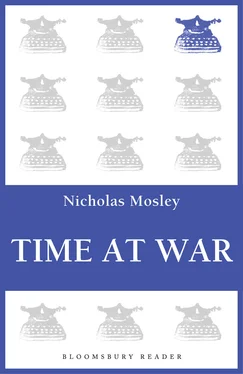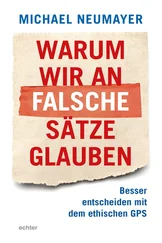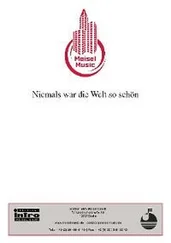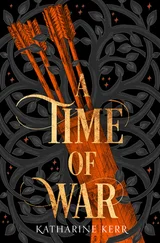There was a similar situation with the Croatians who had been hostile to Tito’s partisans and in some cases sided with the Germans. Tito was demanding that they should be handed over to him because he was now de facto ruler of Yugoslavia, but if this happened it was likely that they too would be shot. Tito gave assurances they would be treated according to conventions. They were handed over, but there is evidence that most of them were shot.
Could anything have been done to prevent this? The world of politicians and top military authorities is dependent on words and bits of paper: there have been such and such discussions and agreements; out of the boundless chaos of five years of war such people have to try to produce order. On the ground, individuals face a different kind of obligation; one should not be responsible for sending off persons to be needlessly murdered. Perhaps, indeed, the individual soldiers on the spot have a duty to try to save politicians from the sins of their terrible calling (this was a view voiced at the Nuremberg trials). The politicians may be faced with unavoidable choices of evils; soldiers may have to risk covering for them and suffering the cost.
But in the vast maelstrom that follows from the crackup of the ice floes of war, what can any individual do with certainty, whether soldier or politician? One hopes to do one’s best.
At the Ossiachersee I was made Battalion Sports Officer, whose job it was to provide occupation for those who had nothing much more militarily to do. I organised conventional games; I could pick myself for any team I liked. I had never been much good at cricket, but at this I could at least show off. Also at hockey, which I had never played before. But at football I had to deselect myself: almost anyone seemed better than me. I had been a good runner at school, so I entered myself for the 440 yards at the Army Games at Klagenfurt — and came in a long way behind the champion of the Jewish Brigade who was said to have run at the White City. After this I thought I should retire from organised sport. At Ossiachersee I watched with some admiration the flirtation games that one or two of my fellow young officers played with a very pretty young Austrian nurse at the orphanage.
It was during these days that in the course of conversation with Desmond Fay I let on that I had been to school at Eton. He had long since come to terms with me being the son of Oswald Mosley; he had said — ‘Oh well, he was a serious politician.’ But at the news that I was an Old Etonian he announced he was so upset that he was not sure if he could carry on with our friendship. This was not entirely a joke: it is part of Leninist theory that fascism is not the unequivocal enemy of communism — it can be a necessary stage in the collapse of capitalism. The clear-cut enemies of the communist proletariat have always been the upper classes.
I went on a week’s leave to Venice and stayed on the Lido, where I had stayed with my father and mother in the summer holidays of 1930. Then, my father had spent much time flirting with my future stepmother Diana, who at that time was married to Bryan Guinness. My sister and I, I remembered, had spent much time being outraged not at my father’s behaviour to my mother, which I suppose we either did not notice or took as normal upper-class behaviour, but because Randolph Churchill, one of my father’s and mother’s entourage, insisted on referring to us children as ‘brats’. Now, on leave in Venice, I wrote to my father that I did not want to do any more sightseeing; I wanted to come home. In continuation of the letters I had written from Ranby and Naples, still in pursuit of what now increasingly obsessed me — the question of how to look for what might be an alternative to humans’ propensity for war — I wrote –
I wonder if Neitzsche’s final madness was really the decadent desperation that people suppose — if it were not ‘tragic’ in the ultimate sense — the culmination of a tragedy in the true Greek style — and therefore something to be greeted and accepted with a ‘holy yea-saying’? Is anything much known of Nietzsche’s final madness? It is a theory that entrances me — that it is perhaps the culmination of all ‘great spirits’ that they should appear to be what the rest of the world calls mad: that perhaps this one form of madness — the Dionysian madness — is really an escape into the ‘eternity behind reality’: neither an advance nor a regression in life but just a sidestep into something that is always beside life. Or am I slightly mad?
It seems to me that the physicists have argued themselves out of their original premises and are floating blindly … if all our sense-perceptions, measures, observations etc. are unreliable, indeed misleading, when it comes to interpreting the ‘real’ world, why do they presume that any experiment they make has any bearing on reality at all? The only thing they can be certain about is that they can never be certain of anything …
It seems that the infinite only makes itself known to the finite by means of selected symbols or ‘emotions’ (which perhaps are only the result of symbol-action): it is beyond the comprehension of the finite (human?) mind to understand the reality behind these symbols. But this does not exclude the possibility of creating — througha fuller understanding of the symbols — a higher form of consciousness which might ultimately glimpse the reality that lay behind.
I had long since seen that my father looked on Nietzsche’s work mainly in political terms whereas I saw it as dealing with metaphysics — in that Nietzsche had seen that language was what humans used in their exercise of power, and that any idea of ‘truth’ had to recognise this and somehow overcome it. Hence Nietzsche’s extraordinary elliptical, ironic, highly wrought style that had to be understood by a reader as an artwork rather than an argument. I hoped to go up to Oxford after I got out of the army in order to read philosophy and to try to get more straight my ideas about all this. (But then, when I did get to Oxford, my tutor said, ‘We don’t do Nietzsche’ — implying that he had been a Nazi).
Mervyn had left the London Irish in Austria in order to work on the staff at Central Mediterranean Headquarters. It seemed that I might not be in a close working relationship with him again. I had a letter from him –
The chaps here are nice, but at present they seem solely interested in their work — not because they like it, because they seem to have been allowed hardly any other interests during the war. How terrible. There is also a large content of ‘the affected young man’ — not your sort of affectation but a far more transparent species of this sometime delectable trait.
Am READING seriously and furiously. Do you know that we have been living in ignorance (I have anyway) of décadence (French) as opposed to honest English decadence. The French sort is far more awful and I must define it to you as soon as I understand it so that we can practise it like mad.
Hope you have opened a branch office of the SDA; you should get many members now. I am having difficulty in extending it here of course.
PS Has your mighty epic (which we planned you would publish at the age of 80 years) taken any less amorphous shape?
For many years I forgot I had planned an epic. But here it now is, rarefied and distilled over a lifetime of not knowing quite in what style to write it.
I had been impatient to get home, not only to my family but also to my old school friends; and now when I got back to the battalion from Venice I learned that this would be possible — under the aegis of an army order that all officers and men under a certain age and with less than a certain time of serving overseas were now eligible to be sent to the Far East to continue the war against Japan — with the benefit of a month’s leave in England first. So my wish to get home was granted — but rather in the manner of that ghost story in which a couple are given three wishes, the first two of which are fulfilled in such a horrific manner that the third has to be that the first two should be cancelled. However, I wrote home –
Читать дальше












